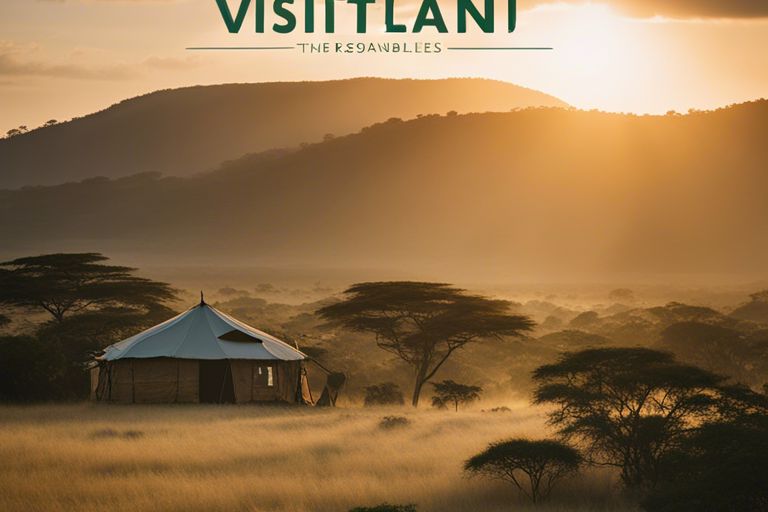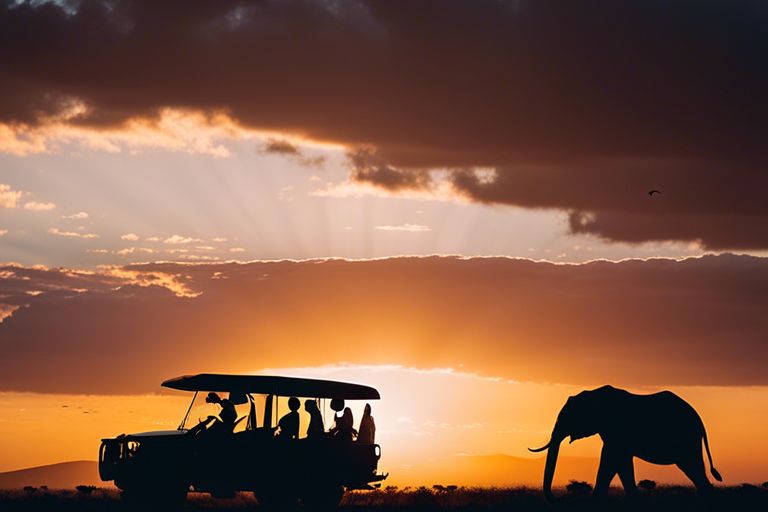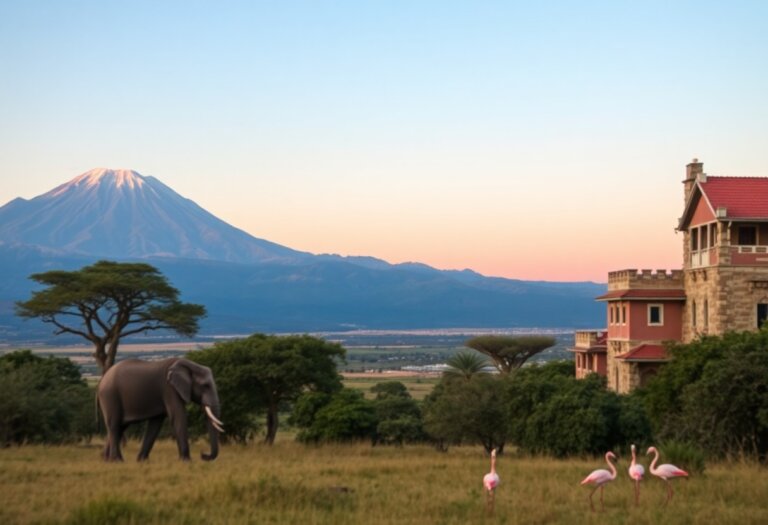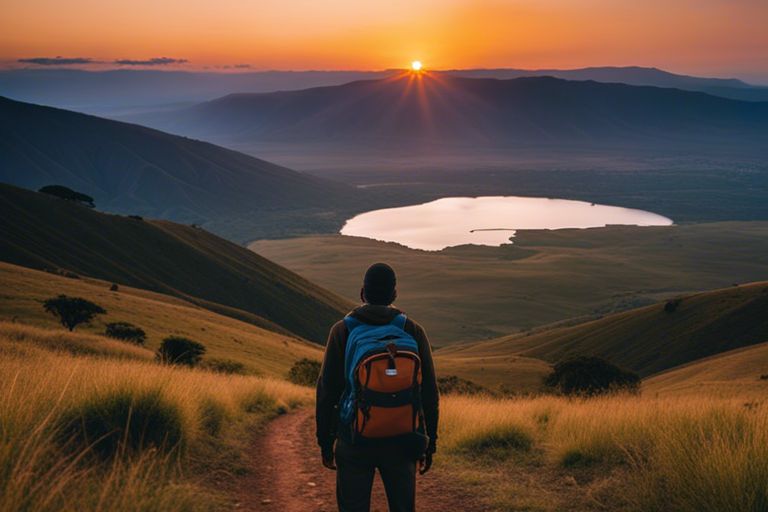Curious About Sustainable Tourism Options In Tanzania? Visit Visittanzania4less.com For Insights!
Overwhelmed by the vast options for sustainable tourism in Tanzania? Look no further than Visittanzania4less.com for insights that will guide you towards ethical and environmentally-friendly travel choices. From wildlife conservation projects to community-based tourism initiatives, this informative resource will help you navigate the ecotourism landscape of this diverse African destination.
Sustainable Tourism in Tanzania
What is Sustainable Tourism?
For a country like Tanzania, known for its stunning natural beauty and diverse wildlife, sustainable tourism is crucial. It refers to traveling in a way that minimizes the negative impact on the environment, supports local communities, and preserves the cultural heritage of the destination. Sustainable tourism in Tanzania focuses on conserving the country’s rich biodiversity and ensuring that future generations can continue to enjoy its treasures.
Why is it Important in Tanzania?
The concept of sustainable tourism in Tanzania is not just a trend but a necessity. The country is home to iconic destinations like the Serengeti National Park and Mount Kilimanjaro, which attract thousands of tourists each year. Preserving these natural wonders is not only important for the environment but also crucial for the local communities that depend on tourism for their livelihoods.
It is imperative that Tanzania adopts sustainable tourism practices to protect its delicate ecosystems and ensure the long-term viability of its tourism industry. By promoting responsible travel and supporting conservation efforts, Tanzania can preserve its natural heritage for future generations to enjoy.
Eco-Friendly Accommodations
Eco-Lodges and Camps
Little compares to the experience of staying at eco-lodges and camps in Tanzania. With a focus on sustainability and responsible tourism practices, these accommodations offer a unique opportunity to immerse yourself in nature while minimizing your environmental impact. From solar-powered facilities to composting toilets and locally sourced materials, eco-lodges and camps are committed to reducing their carbon footprint and preserving the surrounding ecosystem.
Environmentally Certified Hotels
For eco-conscious travelers looking for a touch of luxury without compromising their values, Environmentally Certified Hotels are an excellent choice. For properties to receive this certification, they must meet strict criteria related to energy efficiency, waste management, water conservation, and community engagement. These hotels not only provide guests with a comfortable and sustainable stay but also contribute positively to the local economy and environment.
Environmentally Certified Hotels in Tanzania often participate in conservation projects, support local initiatives, and offer educational programs to raise awareness about environmental issues. By choosing to stay at these hotels, travelers can make a positive impact while enjoying their vacation in Tanzania.

Responsible Travel Practices
Reduce, Reuse, Recycle: Minimizing Waste
One of the key practices for responsible tourism is the implementation of strategies to reduce, reuse, and recycle waste. When visiting Tanzania, travelers can contribute to minimizing their environmental impact by carrying reusable water bottles, avoiding single-use plastics, and properly disposing of waste in designated bins. By being mindful of their consumption and waste generation, visitors can help conserve the natural beauty of Tanzania for future generations to enjoy.
Respect Local Cultures and Communities
One necessary aspect of responsible travel is showing respect for the local cultures and communities you encounter. An understanding and appreciation of Tanzania’s traditions, customs, and way of life can enrich your travel experience and create positive interactions with locals. By supporting local businesses, engaging in cultural activities, and being sensitive to cultural norms, travelers can contribute to the well-being of the communities they visit.
An important way to show respect for local cultures is by seeking permission before taking photographs of people, especially in rural areas. Additionally, taking the time to learn a few words in Swahili, the local language, can go a long way in bridging communication gaps and showing respect for the Tanzanian culture.
Wildlife Conservation and Safety
When traveling to Tanzania, it is crucial to prioritize wildlife conservation and safety practices. The diverse ecosystems of Tanzania are home to iconic species such as lions, elephants, and rhinos, making it imperative for visitors to adhere to guidelines that protect these animals and their habitats. Responsible wildlife viewing includes maintaining a safe distance from animals, following park regulations, and supporting conservation efforts through eco-friendly tourism operators. By choosing ethical wildlife experiences and supporting conservation initiatives, travelers can help preserve Tanzania’s precious biodiversity for generations to come.
Travelers should also be cautious of wildlife-related risks, such as potential encounters with dangerous animals or the spread of diseases. By staying informed, following expert guidance, and respecting the natural habitats of wildlife, visitors can enjoy unforgettable safari experiences while prioritizing the safety of both themselves and the animals.
Exploring Tanzania’s National Parks
Despite the diverse range of national parks in Tanzania, a few stand out as must-visit destinations for travelers looking to experience the country’s stunning wildlife and natural beauty. From the iconic Serengeti National Park to the breathtaking Ngorongoro Conservation Area, Tanzania offers a wealth of opportunities for unforgettable experiences in the heart of Africa.
Serengeti National Park: A Haven for Wildlife
Wildlife enthusiasts will be in awe of the Serengeti National Park, known for hosting one of the most spectacular natural events – the Great Migration. Witness thousands of wildebeest, zebras, and other animals traverse the plains in search of greener pastures, accompanied by predators lurking in the shadows. The park is also home to the Big Five – lions, elephants, leopards, buffalos, and rhinos – offering an unparalleled safari experience.
Tarangire National Park: Baobab Trees and Elephants
Haven for elephants, Tarangire National Park is famous for its large population of these majestic creatures roaming freely among the iconic baobab trees. Visitors can enjoy game drives and witness the elephants’ impressive social interactions and playful antics in their natural habitat. The park’s diverse birdlife and stunning landscapes make it a paradise for nature lovers and photographers.
Baobab: The Tarangire National Park’s landscape is dotted with ancient baobab trees that add a mystical charm to the surroundings. These majestic trees, some hundreds of years old, stand tall and proud, offering shade to resting animals and creating a unique backdrop for memorable safari experiences.
Ngorongoro Conservation Area: Crater and Wildlife
Any visit to Tanzania would be incomplete without exploring the wonders of the Ngorongoro Conservation Area, home to the world’s largest intact volcanic caldera – the Ngorongoro Crater. This natural amphitheater is teeming with a vast array of wildlife, including herds of grazing animals, predatory cats, and abundant bird species, all thriving in this unique ecosystem.
A journey into the Ngorongoro Crater offers a surreal experience as visitors descend into the crater floor and are surrounded by the lush vegetation and shimmering soda lake. This UNESCO World Heritage Site provides a rare opportunity to observe a harmonious balance of wildlife and nature in a breathtaking setting that will leave a lasting impression on any traveler.

Community-Based Tourism Initiatives
Supporting Local Communities through Tourism
Unlike traditional tourism models that often exclude local communities from benefiting directly, community-based tourism initiatives in Tanzania aim to involve and empower residents in the tourism industry. By partnering with local villages and organizations, these initiatives create opportunities for community members to showcase their culture, traditions, and way of life to visitors. Supporting local communities through tourism not only generates income and employment opportunities, but also fosters a sense of pride and ownership among residents, leading to sustainable development in the region.
Cultural Immersion Experiences
For travelers seeking authentic cultural experiences, community-based tourism initiatives in Tanzania offer unique opportunities to immerse oneself in the local way of life. An array of activities such as traditional dances, cooking classes, and craft workshops allow visitors to connect with locals and gain a deeper understanding of Tanzanian culture. These experiences not only enrich the travel experience but also contribute to the preservation of cultural heritage and traditions.
Community-based tourism initiatives in Tanzania are a win-win for both travelers and local communities, offering unforgettable experiences while simultaneously supporting sustainable development and cultural preservation.
Off the Beaten Path Destinations
For those seeking a unique and less touristy experience in Tanzania, exploring off the beaten path destinations is a must. These hidden gems showcase the untouched beauty of the country and offer a glimpse into the authentic Tanzanian way of life.
The Hidden Gems of Southern Tanzania
Beaten tracks in Southern Tanzania lead to hidden treasures like the Selous Game Reserve, the largest game reserve in Africa. With fewer visitors than the northern safari circuits, this reserve offers a more exclusive safari experience. The remote Ruaha National Park is another highlight, known for its diverse wildlife and stunning landscapes. For those looking to immerse themselves in the local culture, the vibrant Makumbusho Village in Dar es Salaam provides a glimpse into traditional Tanzanian life.
Exploring the Coastline and Islands
Exploring the coastline and islands of Tanzania unveils a world of turquoise waters, sandy beaches, and rich marine life. From the idyllic island of Mafia with its pristine coral reefs to the historical town of Kilwa Kisiwani with its UNESCO World Heritage Site status, there is much to discover beyond the mainland. Whether it’s snorkeling in the crystal-clear waters or learning about the Swahili culture, the coastal regions offer a different perspective of Tanzania.
Destinations like Zanzibar, Pemba, and the lesser-known Pangani coast are perfect for those seeking a tranquil beach getaway. Dive into the rich history of these coastal areas while basking in the tropical serenity they offer.
Final Words
On the whole, exploring sustainable tourism options in Tanzania can be a rewarding and eye-opening experience. By visiting VisitTanzania4less.com, travelers can gain valuable insights into responsible ways to enjoy the beauty of Tanzania while preserving its natural resources and supporting local communities. So, if you’re curious about sustainable travel in Tanzania, pack your bags, visit VisitTanzania4less.com, and get ready for an unforgettable adventure!







